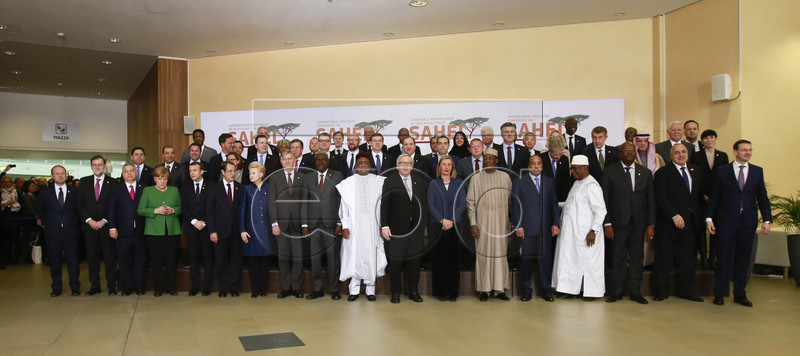
International donors have raised half a billion dollars for a multi-national military operation in West Africa’s Sahel region, the EU’s top diplomat said on Friday, as Europe seeks to stop migrants and militants reaching its shores.
At a conference of about 50 countries including the United States, Japan and Norway, countries pledged 414 million euros ($509 million) for the G5 Sahel force, made up of troops from Mali, Niger, Chad, Burkina Faso and Mauritania.
The European Union, which believes training local forces will avoid risking the lives of its own combat troops, was one of the biggest donors, doubling its contribution to 116 million euros. It paves the way to make the force fully operational later this year.
EU foreign policy chief Federica Mogherini stressed that promises had to be followed through on quickly to reach troops, while African leaders said the money so far would only cover the first year of operations.
France, the region’s former colonial power with more than 4,000 soldiers in the region, welcomed the donations after several years of struggling to raise sufficient financing.
The change in sentiment reflected concern that the Sahel could be a springboard for attacks on the West, diplomats said.
“We will continue our offensive alongside the G5 Sahel force to eradicate jihadi terrorist violence across the region,” France’s President Emmanuel Macron said, standing with German Chancellor Angela Merkel and Italian Prime Minister Paolo Gentiloni.
Militants took over northern Mali in 2012 before French forces pushed them back in 2013 in an intervention that alerted Washington and others to the growing threat in the region.
The United States has some 800 troops in Niger, where four U.S. soldiers died in October, but global awareness of the security importance of the vast, desert region remains low.
Spain’s Prime Minister Mariano Rajoy struggled to name the five countries of Mali, Niger, Chad, Burkina Faso and Mauritania as he arrived at the conference.
But Germany’s Merkel said the pledges showed the European Union’s commitment to stabilise the arid region: “We cannot only start to fight illegal migration in Libya. We have to start in Mali, Niger, Chad. All of Europe is involved,” she said.
The G5 Sahel operation, whose command base is in central Mali, is to swell to 5,000 personnel from seven battalions and will also engage in humanitarian and development work.
About 350,000 people travelled through Niger alone in 2017, mostly hoping to reach Europe but some trying to return home, according to the Red Cross.
TWO OPTIONS: MIGRATE OR DIE
Evoking the desperation young people feel in the impoverished Sahel, Niger’s President Mahamadou Issoufou said many had just two options in life: to die in the Mediterranean trying to reach Europe or to die at the hands of militants.
“We have to act resolutely to change the face of the Sahel region or risk seeing this region of the world fall irreversibly into chaos and violence,” Issoufou told the conference after asking leaders and ministers to stand for a moment of silence for two French soldiers killed this week in Mali.
But Issoufou said the force would still need future financing on an annual basis of around 115 million euros and urged the West to take the fight against militants as seriously as it has taken the threat in Iraq and Syria.
As well as the European Union, pledges have come from the United States, Saudi Arabia and the United Arab Emirates, among others.
France is set to spend 1.2 billion euros to fund development in the region over the next five years, a 40 percent increase over current levels, while other countries are expected to provide more aid for farmers, schools and water projects.
The European Union is investing 8 billion euros in development aid in the region, according to EU data.
($1 = 0.8132 euros)
Additional reporting by Robert-Jan Bartunek; and Jean-Baptiste Vey

